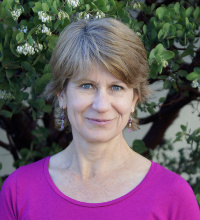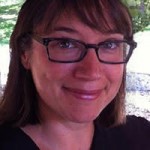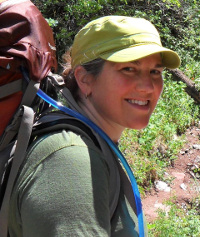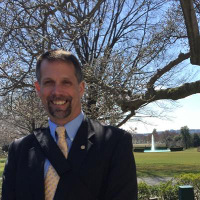Grade Level
All
minutes
15 min - 1 hr
subject
Earth Science
Activity Type:
Discussion, Professional development, climate change
On Tuesday, April 5, 2016, Science Friday hosted a live online web panel to discuss challenges and approaches to teaching climate change science in the classroom. Led by passionate educators who are committed to best practices in climate education, this discussion provided innovative strategies for bringing climate change data into the classroom, ideas for integrating climate science into existing curricula, and best-in-class resources for teaching climate change. You can view the entire discussion, climate change instructional resources, and information about our panel below.
Panel Discussion on Bringing Climate Science Into The Classroom
Climate Change Instructional Resources
3 Sites Recommended by Our Panelists
— Global Learning and Observations to Benefit the Environment (GLOBE) Program
— NOAA Climate.gov
— Climate Literacy and Energy Awareness Network (CLEAN)
Download Panelist Curated Resources
— Regina Brinker’s Recommended Resources
— Lisa Gardiner’s Recommended Resources
— Cheryl Manning’s Recommended Resources
— Frank Niepold’s Recommended Resources.
About the Panel:
Regina Brinker
 Regina Brinker is a science teacher with the Livermore Valley Joint Unified School District in northern California. To better understand local environments and how these are affected by climate change, Regina’s middle school students are often out in the field, observing and collecting data on the natural world around them. She believes that project-based activities and place-based learning engages students and brings relevance to lessons. Through the PolarTREC program, Regina spent three in the Arctic studying release of CO2 from thawing permafrost. She also trained with the TOMODACHI-Toshiba STEM Academy, and the GLOBE program. Follow her on twitter @brinkerscience.
Regina Brinker is a science teacher with the Livermore Valley Joint Unified School District in northern California. To better understand local environments and how these are affected by climate change, Regina’s middle school students are often out in the field, observing and collecting data on the natural world around them. She believes that project-based activities and place-based learning engages students and brings relevance to lessons. Through the PolarTREC program, Regina spent three in the Arctic studying release of CO2 from thawing permafrost. She also trained with the TOMODACHI-Toshiba STEM Academy, and the GLOBE program. Follow her on twitter @brinkerscience.
Lisa Gardiner
 Dr. Lisa S. Gardiner leads K-12 formal education at the UCAR Center for Science Education, which brings the science of climate change, weather, and the Earth system into classrooms through engaging educational resources and professional development for teachers. Combining skills of a scientist, writer, illustrator, and educator, she creates educational experiences about the science of our planet through stories, exhibits, cartoons, classroom activities, science graphics, and children’s books. Lisa holds a PhD in geology from the University of Georgia, a BA in geology and marine science from Smith College, and an MFA in narrative nonfiction writing from Goucher College. She is the illustrator of NASA’s Elementary GLOBE storybooks that introduce Earth system science to K-4 students. She is currently writing a book for grown-ups about living on planet Earth during a time of environmental change. Follow Lisa on Twitter @lisagard2. Follow the UCAR Center for Science Education on Twitter @UCARSciEd and join the UCAR Facebook community.
Dr. Lisa S. Gardiner leads K-12 formal education at the UCAR Center for Science Education, which brings the science of climate change, weather, and the Earth system into classrooms through engaging educational resources and professional development for teachers. Combining skills of a scientist, writer, illustrator, and educator, she creates educational experiences about the science of our planet through stories, exhibits, cartoons, classroom activities, science graphics, and children’s books. Lisa holds a PhD in geology from the University of Georgia, a BA in geology and marine science from Smith College, and an MFA in narrative nonfiction writing from Goucher College. She is the illustrator of NASA’s Elementary GLOBE storybooks that introduce Earth system science to K-4 students. She is currently writing a book for grown-ups about living on planet Earth during a time of environmental change. Follow Lisa on Twitter @lisagard2. Follow the UCAR Center for Science Education on Twitter @UCARSciEd and join the UCAR Facebook community.
Cheryl Manning
 Cheryl Manning is the President-Elect of the National Earth Science Teachers Association and a high school science teacher in Evergreen, Colorado. She holds bachelor and master degrees in geology and has taught introductory college earth science courses as well as a variety of middle and high school level science courses.
Cheryl Manning is the President-Elect of the National Earth Science Teachers Association and a high school science teacher in Evergreen, Colorado. She holds bachelor and master degrees in geology and has taught introductory college earth science courses as well as a variety of middle and high school level science courses.
Cheryl did not take any college coursework in climate science but has taken numerous courses as a teacher and read several books on climate change. This work prepared her to teach climate science at the high school level for the last 15 years in earth/space science and AP environmental science and chemistry courses. Through workshops at conferences and inservice trainings, she also works with teachers to incorporate the principles of climate and climate change throughout all of the sciences.
It is her hope that by raising teachers’ awareness of existing resources and training opportunities, teachers and students will begin to explore and learn the science they need to make good decisions. Every problem that is identified can be re-envisioned as an opportunity. We can change the current state of climate science education but we must work together.
Frank Niepold
 Frank Niepold is the Climate Education Coordinator at NOAA’s Climate Program Office in Silver Spring Maryland, a co-chair of the U.S. Global Change Research Program’s Education Interagency Working Group, and the U.S. Climate Action Report Education, Training, and Outreach chapter lead. At NOAA, he develops and implements NOAA’s Climate goal education and outreach efforts that specifically relate to NOAA’s Climate goal and literacy objective. Additionally, he is the managing lead of the U.S. Global Change Research Program document, Climate Literacy: The Essential Principles of Climate Science.
Frank Niepold is the Climate Education Coordinator at NOAA’s Climate Program Office in Silver Spring Maryland, a co-chair of the U.S. Global Change Research Program’s Education Interagency Working Group, and the U.S. Climate Action Report Education, Training, and Outreach chapter lead. At NOAA, he develops and implements NOAA’s Climate goal education and outreach efforts that specifically relate to NOAA’s Climate goal and literacy objective. Additionally, he is the managing lead of the U.S. Global Change Research Program document, Climate Literacy: The Essential Principles of Climate Science.
Meet the Writer
About Xochitl Garcia
@msxgarciaXochitl Garcia was Science Friday’s K-12 education program manager. She is a former teacher who spends her time cooking, playing board games, and designing science investigations from odds and ends she’s stockpiled in the office (and in various drawers at home).
